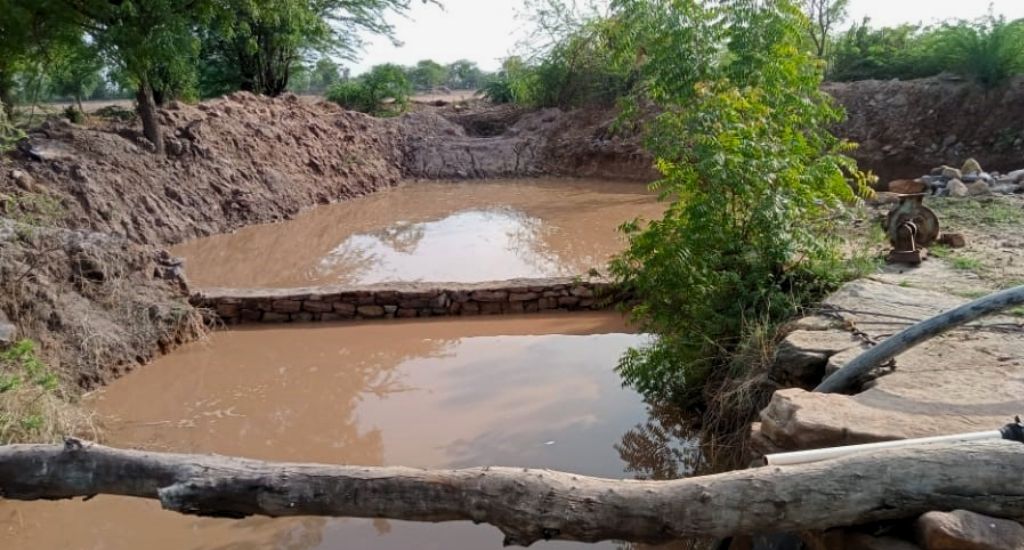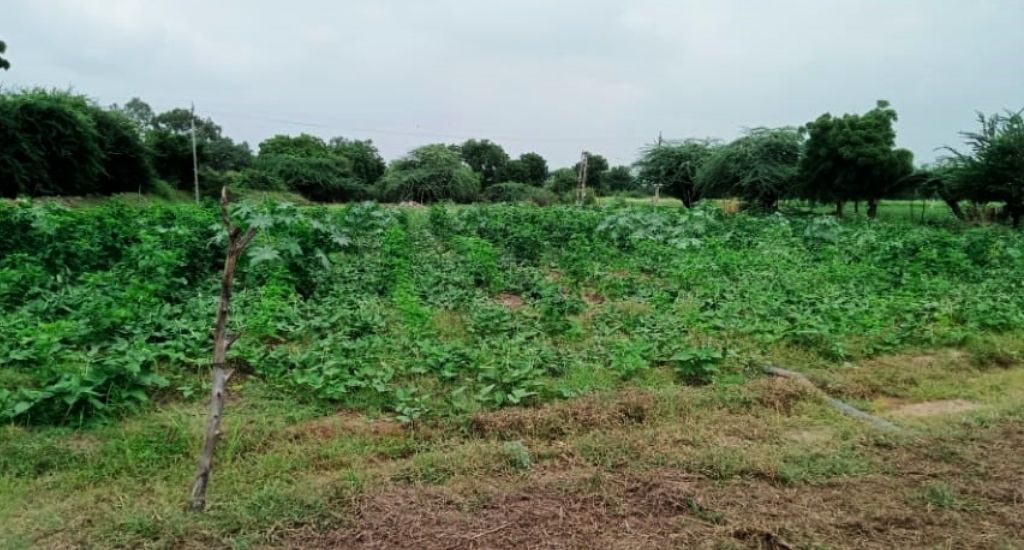
The many gains of a farm pond
Constructing a pond on her farm in Sonpari village of Gujarat has brought many joys for Jayaben, including enhanced income, more cultivable land and enough water for her cattle.

Constructing a pond on her farm in Sonpari village of Gujarat has brought many joys for Jayaben, including enhanced income, more cultivable land and enough water for her cattle.
Consistently low rainfall in Surendranagar, Gujarat, means agony for Jayaben — she cannot irrigate even one bigha of her land to meet her daily needs or quench the thirst of her cattle.
Jayaben, a farmer in Sonpari village, owns ten bighas of land. She along with her husband depend solely on agriculture for their livelihood.
A project initiated by HDFC in 2022 brought immense hope for Jayaben. An early meeting that she attended evoked a keen interest in her about constructing a farm pond.
On Jayaben’s behest, a pond was soon constructed at her farm at a cost of Rs 61,000. Almost three-fourth (Rs 45,000) of the funding was provided by the project, while Jayaben contributed the rest of the sum herself.
Her farm pond, which measures 24×16.7×1.5 metres, can hold as much as 6,11,405 litres of water.

Jayaben has also spent her own money to construct a channel that is connected to a nearby well. This helps in recharging the well when there is excess water in the pond.
The cherry on the cake? The soil excavated during the pond construction, which filled roughly 132 trolleys, was used as topsoil for one bigha of her land that was earlier uncultivable. Jayaben was quickly learning the many benefits of the farm pond.
The farm pond reached its maximum capacity twice during the monsoon in 2022, resulting in collection of 12,22,808 litres of water. Despite the dry spell of around 25 days this year which has resulted in crop damage for many farmers, Jayaben has been able to irrigate her land without any hassle.
During the past kharif season, Jayaben cultivated cotton, bajra, maize and sesame on her land. Against a total input cost of Rs 5,200, Jayaben’s net income stood at Rs 7,800. What brought her most joy was that she was able to earn a net income of Rs 4,000 from the one bigha land which was earlier uncultivable. And that her cattle will now have sufficient water to drink in the summer months.
Tejas Vala is a development organiser at Aga Khan Rural Support Program (AKRSP). Neha Gupta is programme specialist (monitoring & evaluation) at Aga Khan Rural Support Program (AKRSP).
The lead image at the top shows Jayaben’s farm pond.